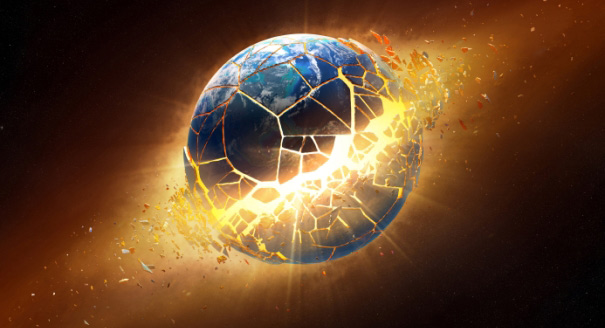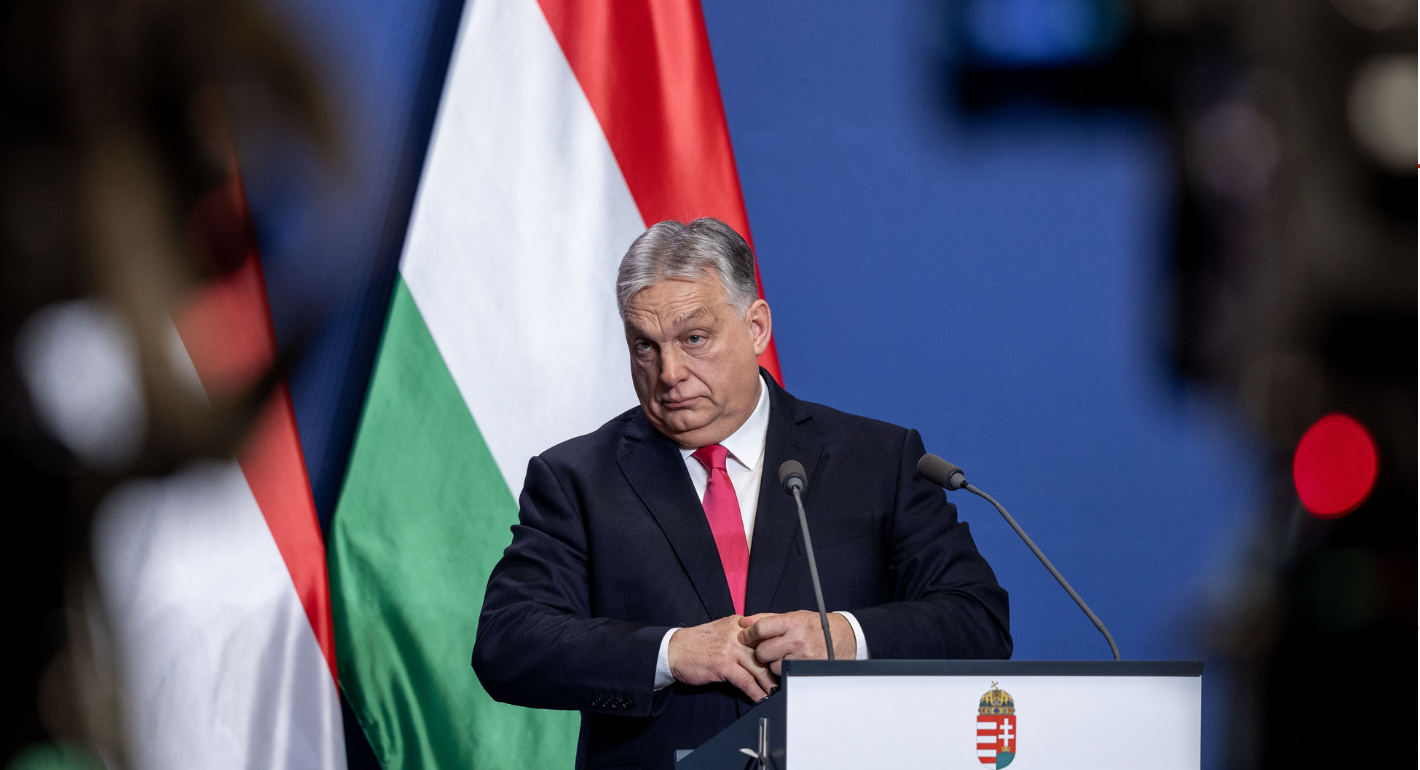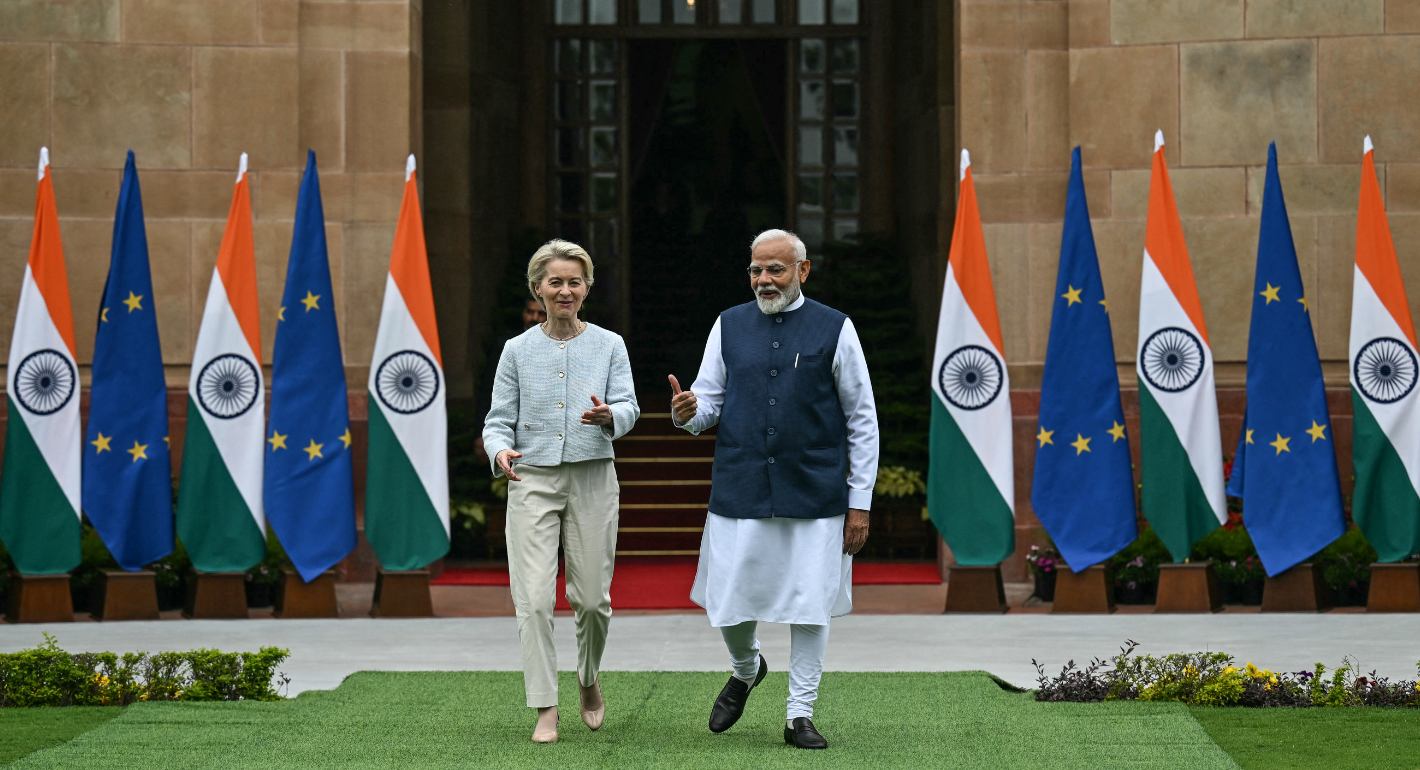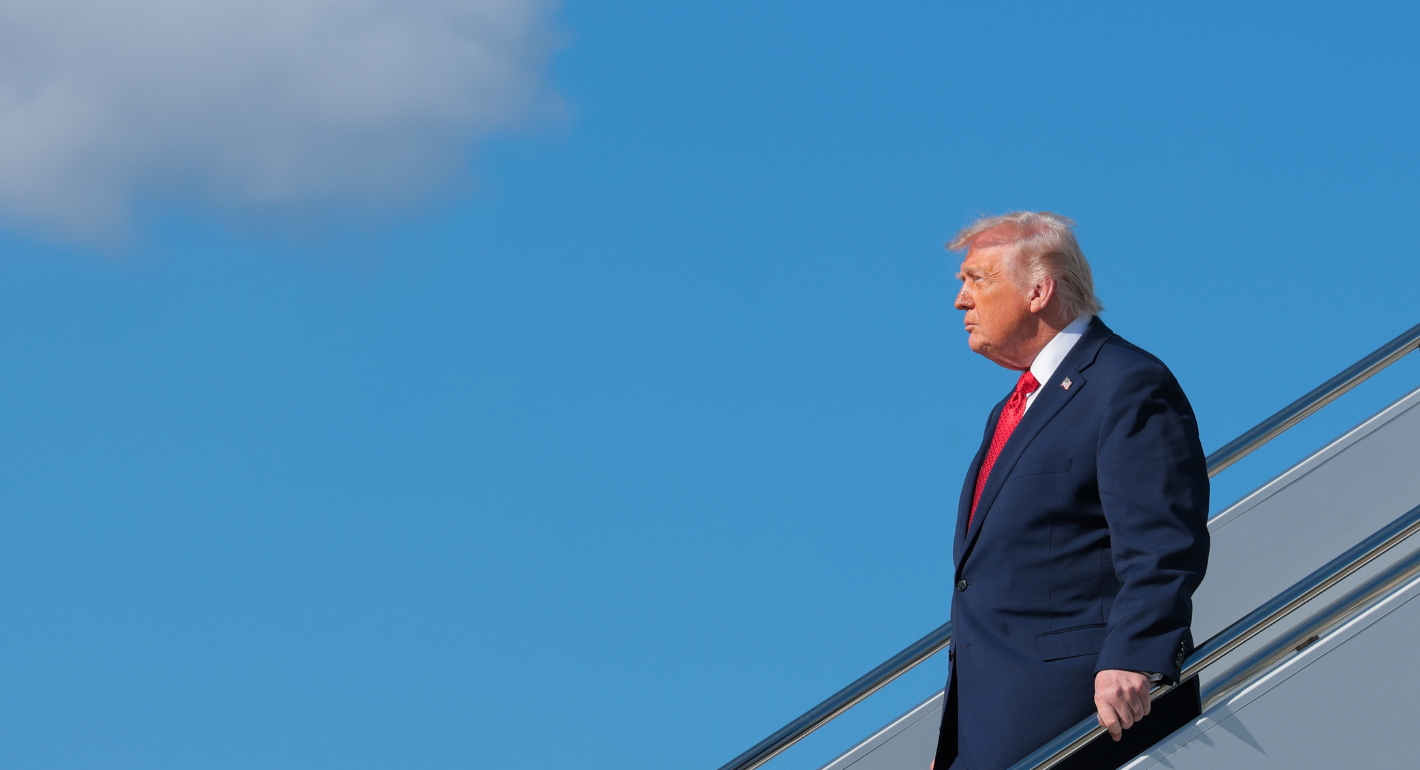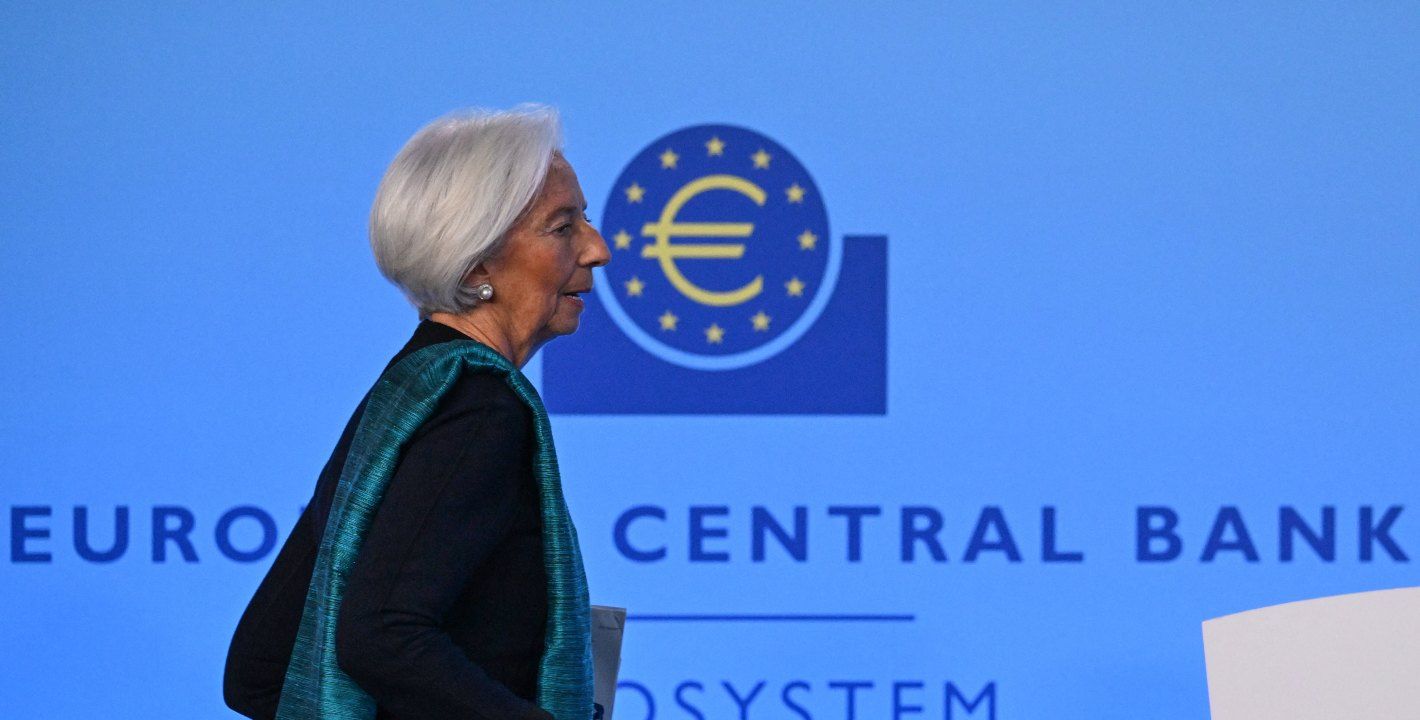Every week, a selection of leading experts answer a new question from Judy Dempsey on the foreign and security policy challenges shaping Europe’s role in the world.
Ian BremmerPresident and founder of Eurasia Group
Yes, it is. And it’s a process that has been building since the Cold War’s end. The world has entered a phase of geopolitical creative destruction.
The world has entered a phase of geopolitical creative destruction.
The United States, still the world’s sole military superpower, hasn’t followed a coherent foreign policy strategy since the Berlin Wall fell, and the costly wars in Iraq and Afghanistan leave Washington more risk averse and reactive than at any time since the 1930s. Add a more assertive but internally focused China, an insecure and resentful Russia, an ever more volatile Middle East, a Europe still finding its postcrisis footing, and increasingly fractious U.S. relations with traditional allies, and the underpinnings of the postwar order are being stripped away piece by piece.
Added to that is the anxiety provoked by technological changes that make it more difficult for one government to ignore the problems of its neighbors. Challenges are global, but responses remain local.
The end of the post–World War II order and the emergence of a transitional period that I call the G-Zero world were inevitable. Much less clear is what comes next. Creative destruction is a natural process. It’s not the destruction that should worry us. The concern is that what is being created remains very much in doubt.
Sally Khalifa IsaacAssociate professor of political science at Cairo University
The post–World War II global order already came to its demise with the end of the East-West political, economic, and ideological rivalry. The resulting Western-led liberal world order that emerged at the dawn of the 1990s is now experiencing multifaceted transformations, despite its apparent solidity. This order has been weakened, even if it still appears well established through seemingly universal acceptance of its political and economic values and institutions.
Two factors explain these trends. One has been the rise of non-Western challengers, such as China and Russia, to resist the dominance of the United States in world politics. A second factor has been the widening North-South gap, which emphasizes economic disparity, sociopolitical inequality, cultural inferiority, and human grievances in the developing world. Resulting security threats, mainly nuclear proliferation, terrorism, and state fragility, are challenging the stability of the global order.
The current global order is on the way to falling apart.
Besides, the forces of globalization have caused fundamental transformations—not only the steady downfall of state sovereignty in favor of universal rules and regulations, but also a rebellious upsurge in the roles of certain substate and transnational actors, who increasingly stress localization, political autonomy, and cultural distinctiveness. The meager success (if not the apparent failure) of existing international political and economic institutions to deal with today’s global challenges indicates that the current order is on the way to falling apart.
Lina KhatibDirector of the Carnegie Middle East Center
The post–World War II global order has given way to twenty-first-century global disorder in which nonstate actors are almost as influential as states. It is a fluid environment in which new political forces are trying to realize their global and regional ambitions.
The key characteristic of this new disorder is the relative retreat of U.S. foreign policy, especially in the Middle East. But Europe’s role in the region has also been declining, and European countries today seem to be largely following U.S. policy in their approaches to the region.
The retreat of U.S. and European foreign policies has given myriad political actors in the Middle East an opportunity to assert their own influence. This has led to a heightening of rivalries not only between ideologically opposed entities like Iran and Saudi Arabia but also among Gulf actors.
The Middle East has become the locus of the new global disorder.
Those rivalries, coupled with the West’s timidity toward the region, have in turn allowed nonstate actors to try to use emerging political openings to assert their presence and influence. From militias in Iraq to Hezbollah in Lebanon to the new hybrid of state and terrorist organization that is the self-styled Islamic State, nonstate actors have become key drivers of political dynamics in the Middle East. Their behavior is influencing that of Western and regional actors, pushing some toward pragmatism and others toward often-uncomfortable coalitions and compromises. Many states that used to set the global agenda are becoming increasingly reactive in their policies.
The Middle East today has therefore become the locus of the dynamics of the new global disorder.
John KornblumSenior counselor at Noerr LLP and former U.S. ambassador to Germany
Not only the post–World War II order but also the post–Cold War order are rapidly crumbling. Each was based on a Eurocentric structure motivated primarily by a vision of binding democratic world order as a means of overcoming the aggression and nationalism of the past. The rules of this system were based on the political and economic goals of the leading industrial nations.
The post-WWII order and the post-Cold War order are rapidly crumbling.
A radical integration of the world through high-speed information networks and modern logistics is redrawing the global geostrategic map. The first Industrial Revolution destroyed the world order based on monarchies and colonialism and led to the rise of massive industrial corporations and the modern methods of warfare that they produced.
Digitalization will destroy the top-down management system that emerged from the nineteenth century. It will tear apart the current rigid system of national states and international institutions and will create new concepts of asymmetrical warfare as radical as airplanes and submarines were a hundred years ago.
Power and influence will flow to those who can move quickly to exploit new sorts of network behavior. The system will require an open, democratic code of values that allows the greatest possible flow of objective information. Regimented, consensus-based structures—be they in China or the European Union—are bound to fail.
Christine OckrentCommentator and writer, and producer of Affaires étrangères on France Culture radio
Seventy years after the end of World War II, the institutions set up to stabilize a new world order are still in place. Whatever their relevance and capacity to respond to current challenges, the UN, the International Monetary Fund, and the World Bank have remained the main pillars of international relations among nation-states and governments. The most original and daring institutional invention of the twentieth century, the European Union, has also survived its own shortcomings and expanded into a major player in world affairs, albeit a reluctant one.
The #EU has survived its shortcomings and become a major world player.
What has been breaking down before our eyes, blinding us with fragments of that old architecture, is the post–Cold War order. The idea has faltered that the quest for peace had become common, that Western values were bound to win out, that the West had no more enemies except from within, and that economic globalization would swamp fundamental divergences.
Vladimir Putin and Da’ish have smashed this utopia. Claiming to be taking revenge on history, the Russian president wants to restore an empire based on nuclear weapons and Russia’s own set of moral values. Meanwhile, the group also known as the self-proclaimed Islamic State intends to erase colonial borders and impose the rule of medieval Islam drenched in blood. History is tilting backward.
Volker PerthesExecutive chairman and director of the German Institute for International and Security Affairs (SWP)
No, the global order is not breaking down. Or at least, it doesn’t need to. But its functionality is challenged in places where regional order is threatened (as in Europe) or disintegrating (as in the Middle East) or where major players refuse to adapt rules and rights to changing realities.
Any order needs to balance power and legitimacy. This simple truth seems to be forgotten too often, and too many actors still confuse lack of change in an established order with stability.
Orders collapse when those who should be active stakeholders feel excluded.
Orders collapse when those who should be active stakeholders feel excluded. Order can usually be maintained when rules and rights are adapted to account for shifts in power relations, maintaining the legitimacy of the system. This applies to power shifts both in the world of states, notably with the rise of China and others, and inside states, particularly regarding the rise of the middle classes and electronically empowered individuals.
Arguably, the more that countries develop and integrate into the global economy, the stronger their interest to contribute to maintaining international order. The question is whether and how established and (re)emerging powers find ways to deal with global changes and challenges cooperatively.
There are positive recent examples here: international cooperation on the Iran nuclear file, for example, finally seems to bring about not only a peaceful solution but also one that strengthens an important part of the international rules system—the nuclear nonproliferation regime.
Yet such efforts will not succeed without the inclusion of those who have gained in power. Therefore, the failure of the U.S. Congress to ratify the reform of the International Monetary Fund to which leaders agreed at the G20 summit in 2014 may be as detrimental to international order as the inability of some now-failed states to establish inclusive forms of national government.
In China, there seems to be broad consensus about China’s interest in preserving the current international order—albeit on the basis of Beijing’s own interests. However, if the West fails to give China and other reemerging nations an adequate share in international institutions, those states will no longer be interested in defending the institutional structure of the world.
Ulrich SpeckVisiting scholar at Carnegie Europe
There never was one single post–World War II global order. In the order conceived by former U.S. president Franklin D. Roosevelt at the end of the war, the winners of the conflict would serve as benevolent guardians of peace—a position institutionalized in the UN Security Council.
The Soviet Union’s Joseph Stalin agreed because he understood the UN system in traditional European terms as a concert of great powers. For him, the post-WWII global order meant a division of the world into spheres of influence and the right for Moscow to enforce those spheres with brute force. The UN order, as conceived by the United States in the spirit of liberal internationalism, was sidelined and de facto replaced by an order in which two systems competed for world dominance—the Cold War.
One key member of the #UNSC, #Russia, has a very narrow agenda.
After the Cold War, many hoped that Roosevelt’s vision might have a second chance: an order in which the great powers would cooperate in pushing back against the enemies of peace and work together for a more just and fair world.
But as can now be seen more clearly than before, one key member of the UN Security Council, Russia, has a very narrow agenda. That agenda is driven by the interest of the country’s regime to survive, not by the kind of benevolent guardianship that Roosevelt had in mind and that is necessary to advance international cooperation and global governance.
Stephen SzaboExecutive director of the Transatlantic Academy
Yes, but this should not be a surprise. Nothing lasts forever, and the postwar order was still largely Eurocentric and bipolar. Today, that order is multipolar and increasingly global rather than Western.
The Middle Eastern order was set out in the Sykes-Picot Agreement during World War I and is clearly breaking down. In Asia, China has emerged as the dominant power, but still one based more on geo-economics than on geopolitics.
#Britain's decline is clear, and #Germany is now the reluctant pivotal power.
Europe is now wider and less stable than in the postwar period. Britain’s decline is clear, and Germany is now the reluctant pivotal power. Russia seems to be trying to recover an idealized past, while the United States is less central to the new world order than it used to be. As the Italian theoretician Antonio Gramsci put it, the old is dying and the new cannot be born.
Dmitri TreninDirector of the Carnegie Moscow Center
In a popular Russian period film, a foreign envoy whispers to a colleague, pointing to the Russian grand chancellor, Count Alexey Bestuzhev-Ryumin: “The old man doesn’t look well today.” To which his more experienced interlocutor quips: “He hasn’t been looking well for the last fifty years.”
The post–World War II global order is seventy. Its main institutions—the UN, the International Monetary Fund, and the World Bank—are beset with tons of problems and face challenges from the likes of NATO, the BRICS emerging economies, and, more recently, the Chinese-led Asian Infrastructure Investment Bank. Observers are not whispering, they are yelling.
Life expectancy of world orders varies, but, like humans, they are all mortal.
To be honest, however, the formal order never functioned as designed. Almost immediately after the end of World War II, it was overshadowed by the U.S.-Soviet confrontation of the Cold War and then, in the post–Cold War period, by U.S. global dominance. The first of these informal orders is history, and the second is on its way out. The successor regime does not even have a name yet: it is too difficult to define. Those who fear it may be disorder are in fact looking at the transition stage, which has already begun.
Life expectancy of world orders varies, but, like humans, they are all mortal. The post–World War II order has lasted longer than most, and its institutions, like the old Russian grand chancellor, will be of use for some time yet. Over time, complete change is inevitable, and one should only hope that for the first time in history, it will not result from a war.
Sinan ÜlgenVisiting scholar at Carnegie Europe
Until the UN Security Council is reformed, it cannot credibly be argued that the post–World War II global order is breaking down. The Security Council remains the top-level institution of global governance. It is, however, an egregious reminder of the outcome of the last global war, with the winners continuing to enjoy—even after two generations—a privileged status with their permanent seats and veto power.
The #UNSC is an egregious reminder of the outcome of the last global war.
Over the last seventy years, power shifts have fundamentally altered the global pecking order. From the standpoint of both economic prowess and political influence, other nations have come to the fore. Yesterday’s losers turned out to be today’s winners. Germany has arguably become the most potent country in Europe. Brazil and India are similarly playing lead roles in their respective neighborhoods as representatives of the club of emerging powers. Japan remains among the top tier of global economies.
But for the nations that were victorious in 1945, the pretense of leadership continues. So I hope that the post-WWII global order will be unshackled, starting with the UN Security Council, which should acquire the characteristics of a more inclusive and representative organization.

